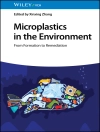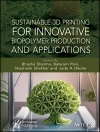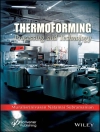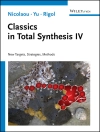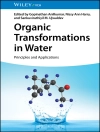This high-class book reflects a decade of intense research, culminating in excellent successes over the last few years. The contributions from both academia as well as the industry leaders combine the fundamentals and latest research results with application know-how and examples of functioning displays.
As a result, all the four important aspects of OLEDs are covered:
– syntheses of the organic materials
– physical theory of electroluminescence and device efficiency
– device conception and construction
– characterization of both materials and devices.
The whole is naturally rounded off with a look at what the future holds in store.
The editor, Klaus Muellen, is director of the highly prestigious MPI for polymer research in Mainz, Germany, while the authors include Nobel Laureate Alan Heeger, one of the most notable founders of the field, Richard Friend, as well as Ching Tang, Eastman Kodak’s number-one OLED researcher, known throughout the entire community for his key publications.
Зміст
Introduction
Inorganic Semiconductors for LEDs
Physics of OLEDs
Photophysics of Emissive Materials
Optimisation of OLEDs
Optimisation of Multilayer OLEDs
Synthesis of Electroluminescent Polymers
Hole-transporting, Hole-blocking and Electron-transporting Materials for OLEDs
Dendrimer-based OLEDs
Layer-by-layer Processing of OLEDs
Semiconductor Nanoparticle/Polymer Hybrid OLEDs
Electrophosphorescent Devices
Low Threshold Organic Semiconductor Lasers
Про автора
Professor Klaus Mullen joined the Max-Planck-Society in 1989 as one of the directors of the Max-Planck-Institue for Polymer Research in Mainz, Germany. he obtained his diploma in chemistry in 1969 from the University of Cologne, and completed his Ph D at the University of Basel, Switzerland, in 1972. He joined the ETH Zurich and was appointed lecturer (Privatdozent) after finishing his habilitation in 1977, and moved on to a professorship at Cologne University two years later. He followed a call to the chair of organic chemistry at Mainz University in 1983. He received the Max Planck research prize in 1997 and the Phillip-Morris research prize in 1999, and has been visiting scientist at Osaka, Shanghai, Leuven, Jerusalem, Cambridge and other distinguished universities.
Prof. Dr. Ullrich Scherf studied chemistry at Friedrich Schiller University of Jena, Germany, obtaining his Ph.D. in 1988 on the synthesis of PPV-type organic semiconductors and carbonization of polymer films. He subsequently spent one year at the Institute for Animal Physiology of the Saxonian Academy of Sciences in Leipzig isolating and characterizing of cockroach hormones. He joined the Max Planck Institute for Polymer Research, Mainz, in 1990 and completed his habilitation in 1996 on polyarylene-type ladder polymers. He followed a call to the University of Potsdam, Germany, onto a professorship for polymer chemistry. In 2002, he became full professor for Macromolecular Chemistry at Bergische Universitat Wuppertal, Germany. He has published over 350 refereed papers and received the Meyer-Struckmann Research Award in 1998.



